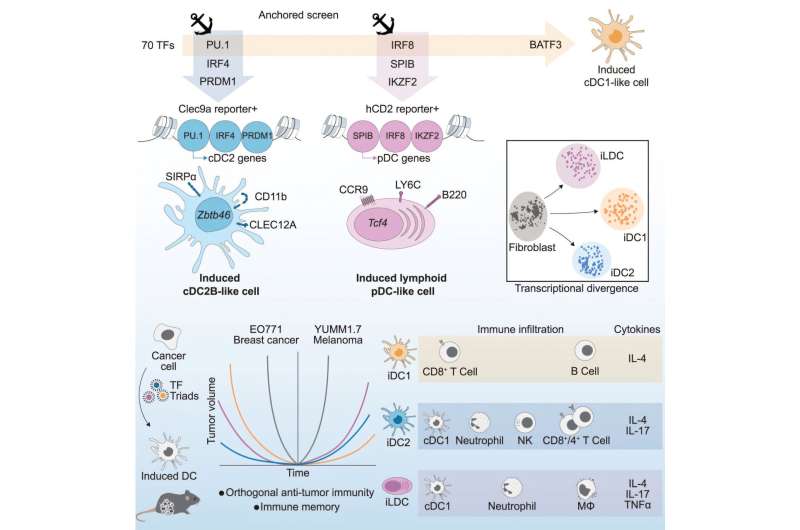The team has taken an important step toward harnessing the immune system to fight cancer. Their work describes how they identified a genetic toolkit that programs two powerful subtypes of dendritic cells—key sentinels of the immune system.
Dendritic cells are a diverse group of immune cells that act as the body’s “teachers,” guiding the immune system to recognize and attack threats such as viruses, bacteria or tumors. Each subtype triggers different immune responses, adapting to the nature of the threat. Supplying patients with dendritic cells designed to target their cancer could make treatments more precise and powerful.
Understanding how this cellular diversity is generated during the process of development has long been a mystery. Scientists have known some of the so-called transcription factors—proteins that switch genes on and off—that control these cells’ development, but how these factors work together to create different dendritic cell types has been unclear.

